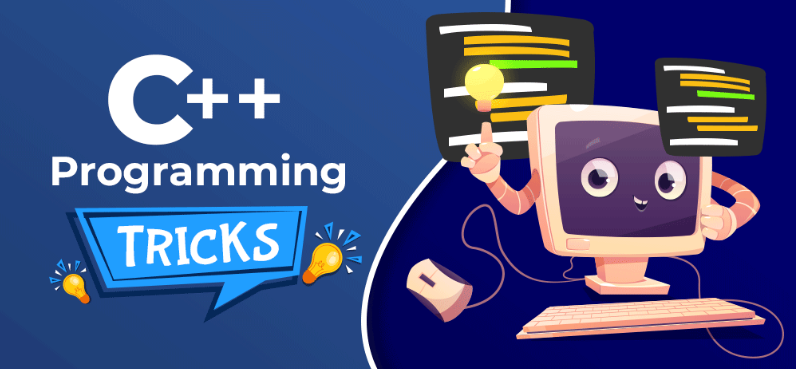
Best C & C++ Programming Training and Placement Center in RT Nagar, Bengaluru |
What is C?
C is a general-purpose, procedural programming language developed by Dennis Ritchie at Bell Labs in 1972. It is widely used for system programming, embedded systems, game development, and performance-critical applications.
Key Features of C
✔ Low-Level & High-Level Features – Used for both hardware and software programming.
✔ Fast & Efficient – Direct memory access using pointers.
✔ Portable & Cross-Platform – Runs on different operating systems with minimal changes.
✔ Procedural Programming – Follows step-by-step execution.
✔ Rich Standard Library – Functions for input/output, memory allocation, and math.
✔ Static Typing – Type checking at compile time.
C Language Components
🔹 Data Types – int, float, char, double, void.
🔹 Control Structures – if-else, switch, loops (for, while, do-while).
🔹 Functions – User-defined and standard library functions.
🔹 Pointers – Stores memory addresses for efficient memory management.
🔹 Arrays & Strings – Used to store multiple values.
🔹 Structures & Unions – Custom data types.
🔹 File Handling – Reading/writing files using fopen(), fread(), fwrite().
Applications of C
- Operating Systems – Unix, Linux, Windows.
- Embedded Systems – Microcontrollers, IoT devices.
- Game Development – Game engines, graphics.
- Compilers & Interpreters – GCC, Clang.
- Database Systems – MySQL, PostgreSQL.
What is C++?
C++ is an extension of C developed by Bjarne Stroustrup in 1983. It adds object-oriented programming (OOP) features while maintaining C’s performance and efficiency.
Key Features of C++
✔ Object-Oriented Programming (OOP) – Supports classes, objects, inheritance, polymorphism, abstraction, encapsulation.
✔ High Performance – Close to hardware like C but with better abstraction.
✔ Standard Template Library (STL) – Predefined templates for data structures and algorithms.
✔ Memory Management – Supports both manual (new/delete) and automatic memory handling.
✔ Multi-Paradigm – Supports procedural, OOP, and generic programming.
✔ Exception Handling – try, catch, throw for error management.
C++ Language Components
🔹 Classes & Objects – Basic OOP structure.
🔹 Constructors & Destructors – Used for object initialization & cleanup.
🔹 Inheritance – Code reuse via parent-child relationships.
🔹 Polymorphism – Function overloading, operator overloading.
🔹 Encapsulation – Data hiding using private/protected members.
🔹 Templates – Generic programming for functions & classes.
🔹 STL (Standard Template Library) – Includes Vectors, Maps, Queues, Stacks.
Applications of C++
- Game Development – Unreal Engine, Unity (C++ core).
- System Software – Windows, macOS kernels.
- Embedded Systems – Robotics, automotive systems.
- Finance & Trading Applications – High-speed trading systems.
- GUI Applications – Qt, GTK, wxWidgets.
- Compilers & Browsers – Chrome, Firefox.
Comparison: C vs C++
| Feature | C | C++ |
|---|---|---|
| Paradigm | Procedural | Multi-Paradigm (OOP + Procedural + Generic) |
| Encapsulation | No | Yes (Classes, Objects) |
| Data Security | Less secure (Global variables) | More secure (Encapsulation) |
| STL Support | No | Yes (Standard Template Library) |
| Memory Management | Manual (malloc(), free()) | new, delete, smart pointers |
| Code Reusability | Low | High (Inheritance, Polymorphism) |
| Performance | Faster for low-level tasks | Slightly slower due to OOP overhead |
Development Tools
🛠 Compilers – GCC, Clang, Turbo C++, MSVC.
🛠 IDEs – Code::Blocks, Dev-C++, Visual Studio, CLion.
🛠 Debuggers – GDB, LLDB, Valgrind.
🛠 Build Systems – CMake, Makefile.
Career Opportunities
💼 C Developer – Embedded systems, system programming.
💼 C++ Developer – Game development, high-performance computing.
💼 Embedded Systems Engineer – IoT, automotive software.
💼 Game Developer – C++ with Unreal Engine.
💼 Software Engineer – Low-level programming, operating systems.
